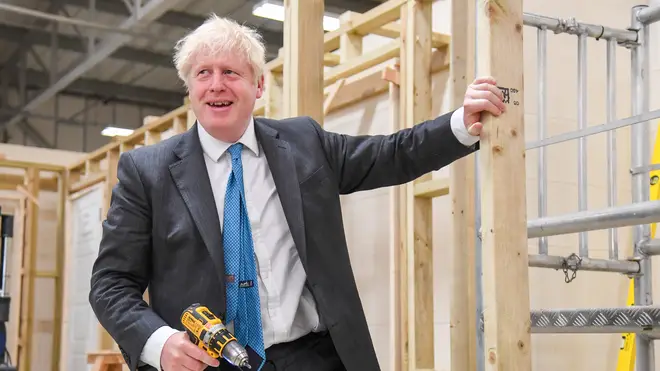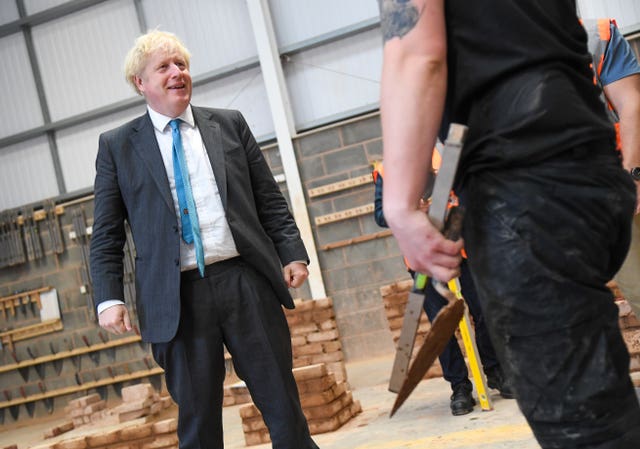
Clive Bull 1am - 4am
29 September 2020, 15:04

The Prime Minister has set out plans to help people change careers and learn new skills.
Boris Johnson warned that huge numbers of people will need to move jobs as a result of the coronavirus pandemic and the rapid pace of economic change.
The Prime Minister set out a package of measures to help people gain new skills, including the promise of free courses for those who lack A-level equivalent qualifications.
Mr Johnson said the coronavirus had accelerated changes that were already taking place in retail and hospitality.
“Before Covid, people were already shopping ever more online, were already sending out for food,” he said.
“But the crisis has compressed that revolution.”
Under the plan, the new “lifetime skills guarantee” would allow people to retrain with the cost picked up by the taxpayer.
“The British economy is in the process of huge and rapid change, driven by the internet and the possibilities of remote communication,” Mr Johnson said.

“But as old types of employment fall away, new opportunities are opening up with dizzying speed – vast new sectors in which this country already leads or can lead the world.”
Asked about warnings for retail jobs, the Prime Minister said: “I’m not going to say that any particular sector faces some fatal or mortal change, I think of all kinds of ways sectors will continue to evolve.
“But there will be change. And not every job will be the same.”
Outlining the scale of the challenge, the Prime Minister said: “Of the workforce in 2030, 10 years from now, the vast majority are already in jobs right now.
“But a huge number of them are going to have to change jobs – to change skills – and at the moment, if you’re over 23, the state provides virtually no free training to help you.”
The offer of free courses will be available from April in England, and will be paid for through the National Skills Fund – which will be topped up with an additional £2.5 billion.
Currently only people aged under 23 qualify for a free first full level three qualification – the equivalent of an A-level.
Higher education loans will also be made more flexible, allowing adults and young people to space out their study across their lifetimes, and apprenticeships will be expanded.
Digital “boot camps” will see employer-led, short, flexible training courses for adults linked to guaranteed interviews.
Mr Johnson said he wanted to end the “snooty” distinction between vocational and academic qualifications as he acknowledged other countries had outperformed the UK.

“Our economy has been shaken by Covid, and in the hand-to-mouth scrabblings of the pandemic the shortcomings of our labour market – and our educational system – have been painfully apparent,” he said in a speech in Exeter.
There was a “significant and growing minority” of people who left university to enter a non-graduate job and were left wondering if they had done the right thing.
“We seem on the one hand to have too few of the right skills for the jobs our economy creates, and on the other hand too many graduates with degrees which don’t get them the jobs that they want,” he said.
The British Chambers of Commerce (BCC) said the Government had “taken an important step toward a more agile adult skills system”.
The BCC’s head of people policy Jane Gratton said: “The Government’s renewed focus on FE, greater investment in technical and digital skills and a more flexible skills system must go hand-in-hand with high quality local delivery that responds quickly to the growth aspirations of business.”
Confederation of British Industry director-general Dame Carolyn Fairbairn said: “Retraining was already a vital priority for the UK.
“The significant unemployment coronavirus is leaving in its wake only accelerates the need for people to develop new skills and adapt to new ways of working.”